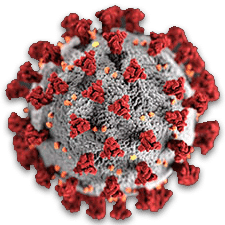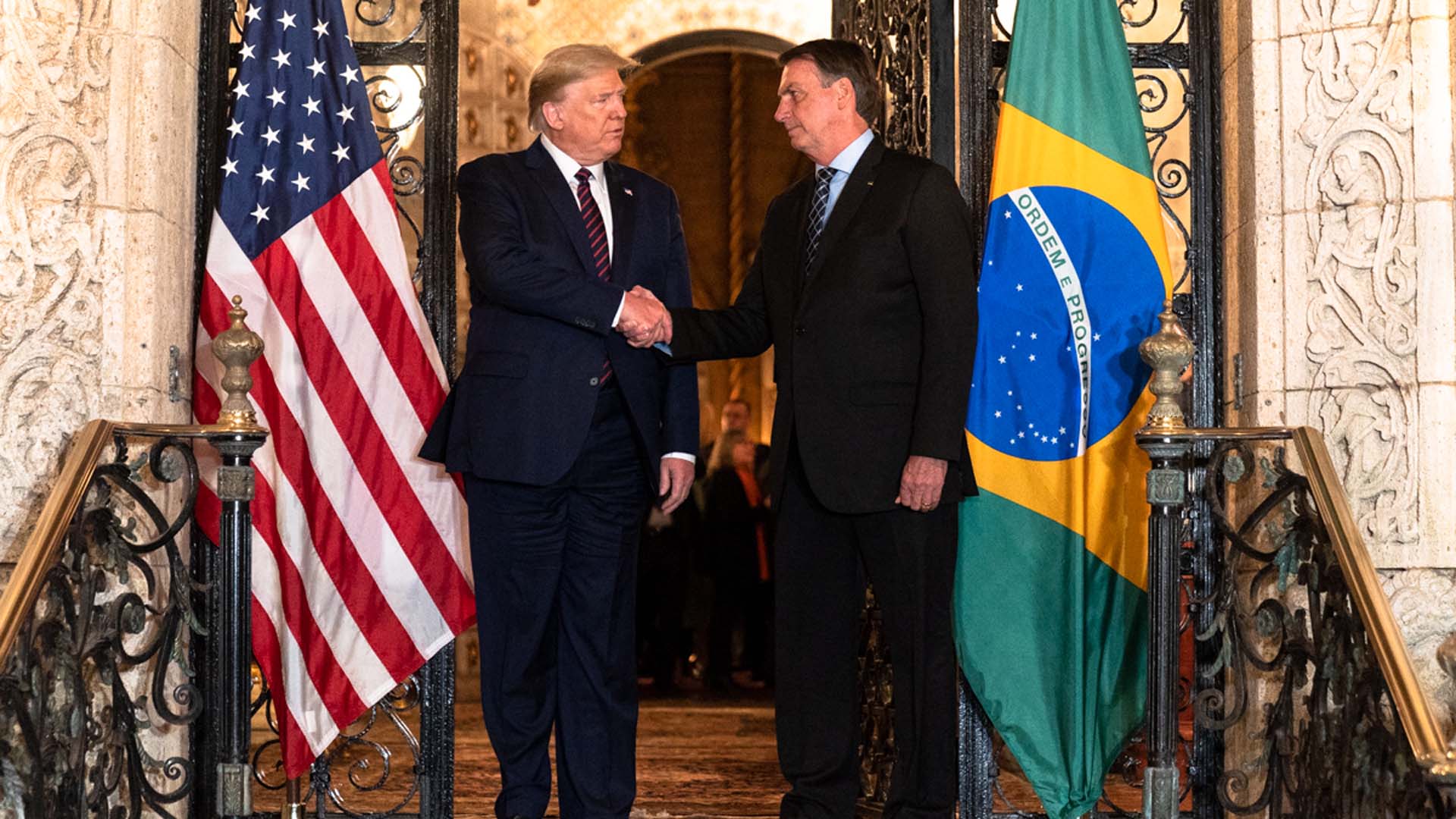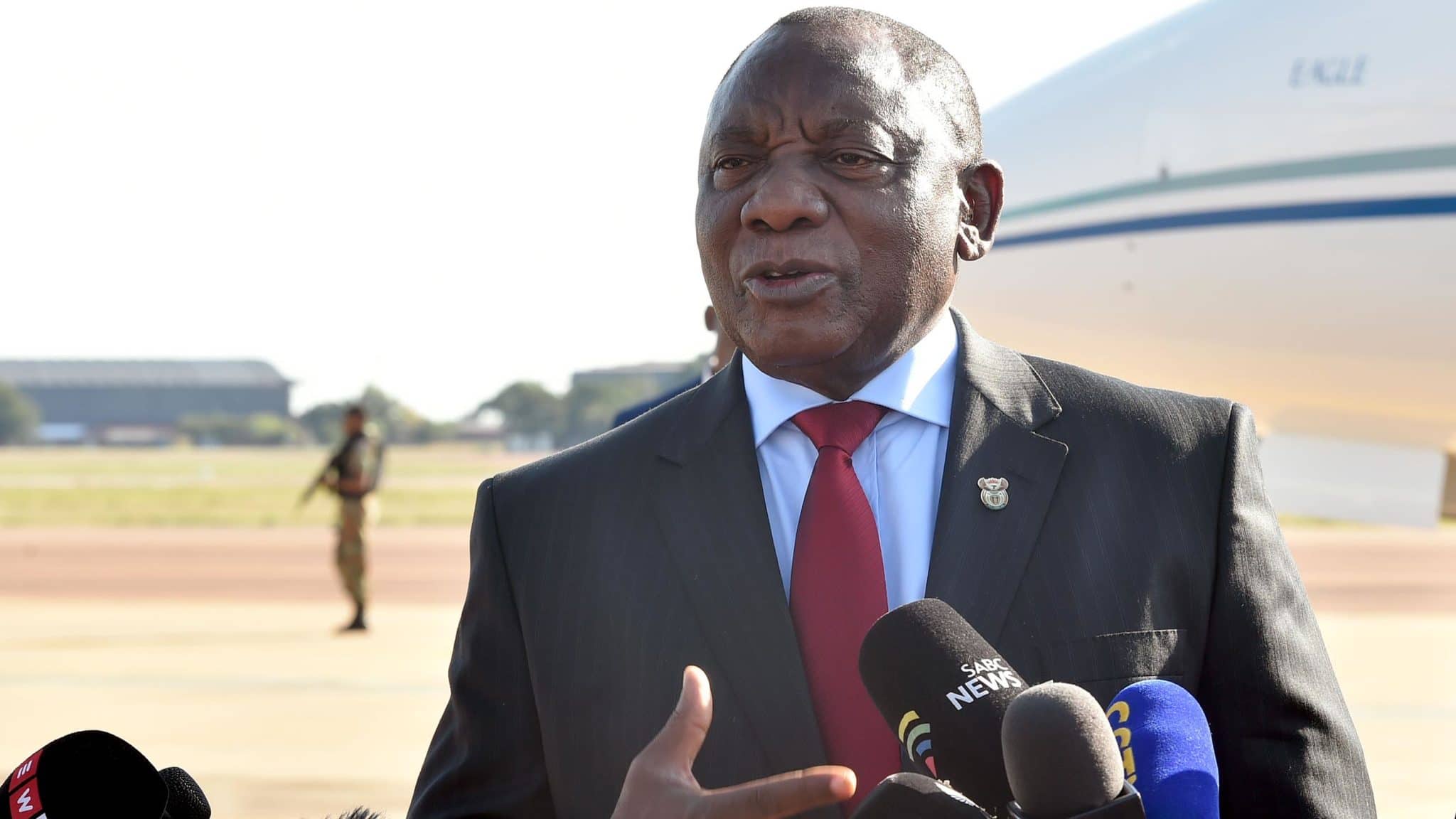Harmful Tweets From High Places: Why Is Twitter Acting Now?
Last month, Twitter did something striking and almost unprecedented: It deleted two tweets from a world leader.
The social media platform removed the posts — both from Brazilian President Jair Bolsonaro — because they violated a new company policy on disinformation involving the global Covid-19 health crisis. One showed him defying the rules of isolation advocated by his own health minister and the World Health Organization; in the other, he defended the controversial use of an unproven drug to treat Covid-19.
Under Twitter’s new policy, anyone caught denying established facts about the disease, propagating false or misleading information, denying scientifically established facts, or posting alleged cures for Covid-19, will have their tweets deleted.
Bolsonaro, a far-right politician, had long sought to deny or minimize the dangers of Covid-19 and encouraged businesses to remain open to save the economy. In early March, for instance, the president called the pandemic a “fantasy” and “hysteria.” On March 20 and again on March 24, he described Covid-19 as a “little flu.”
Bolsonaro isn’t alone. In recent weeks, Twitter has also deleted misleading statements on Covid-19 from Venezuelan president Nicolás Maduro and Rudy Giuliani, one of U.S. President Donald Trump’s lawyers. Noticeably absent from the list: President Trump himself. On April 17, Trump posted a series of Tweets in support of public protests in Michigan, Minnesota, and Virginia. All three tweets appear to violate Twitter’s new Covid-19 rules, which don’t allow posts “actively encouraging people to not socially distance themselves in areas known to be impacted by Covid-19 where such measures have been recommended by the relevant authorities.” The protestors, many of whom did not wear face masks or practice social distancing, were gathered to push back on guidelines by their state governments to limit social interaction. All three states have active Covid-19 cases.
The global pandemic is also far from the first time that dangerous disinformation campaigns have flourished on social media platforms, including those promoted by world leaders. So why, experts are asking, is Twitter acting now? Will it make a difference? And why not censure Tweets from other leaders, including Trump?
Anna Brisola, a Ph.D. candidate in information sciences at the Federal University of Rio de Janeiro, points to a growth in pressure from society — and even from some politicians — to find a solution to the problem of fake news. In the past, she wrote in an email to Undark, companies like Twitter would “hesitate in the repression of fake news” because it can “generate a lot of likes, a lot of sharing, a lot of debate, a lot of data. And that means money.”
But “with the pandemic frightening the world, threatening the economy and, especially, lives, fake news and rumors have become also a public health problem, standing between life and death,” she adds. Media companies likely don’t want to be held responsible for not acting — or the potential economic fallout. Already, there are more than 2.6 million confirmed cases of Covid-19 worldwide and the disease has killed more than 180,000 people, according to the Johns Hopkins Coronavirus Resource Center. In such a crisis, Brisola says, the platforms don’t want “to be labeled as the one that has no credibility.”
A different economic calculation may be at play when it comes to Trump, however. Twitter is based in the U.S., and the Trump administration has more potential power over the company compared to Bolsonaro and other world leaders, Brisola says. It’s unclear, she adds, whether Twitter will ever take down a post from Trump: “Are they willing to touch this hornet’s nest?”
Still, Twitter’s new policy may not be enough to contain disinformation related to Covid-19, particularly if the company only targets certain leaders. It also many not help even in cases like Bolsonaro’s. After all, in Brazil, Bolsonaro’s false claims still appear on other media, including on television. And they could still be shared on WhatsApp, one of the country’s main social media platforms for spreading disinformation. To address this, the Facebook-owned messaging app has taken steps to reduce the spread of disinformation by limiting the number of times people can share frequently forwarded messages — from five to only once. It has also limited the forwarding of messages to a single chat at a time.
Under its new policy so far, Twitter says it has removed more than 1,100 tweets containing misleading and potentially harmful Covid-19 content and required more than 1.5 million suspicious accounts to verify contact information or complete a reCAPTCHA test.
On March 25, Venezuelan president Nicolás Maduro became the first state leader to have a tweet deleted under the policy. In response, Maduro denounced Twitter, saying the platform “censored” one of his posts in which the leader claimed to have received some articles from a Venezuelan scientist that included a supposed cure for Covid-19: a mixture containing, among other ingredients, honey, lemon, and pepper. (A previous instance of Twitter pulling a world leader’s Tweet happened in February 2019, but it wasn’t for disinformation: The company removed a message from an account that reportedly belongs to Iranian leader Ayatollah Seyed Ali Khamenei reinforcing a 1989 call for the murder of writer Salman Rushdie.)
Also in March, Twitter deleted a post from Giuliani, who advocated the use of hydroxychloroquine, a malaria remedy with uncertain effectiveness in treating Covid-19 — the same unproven drug being promoted by Bolsonaro. In Brazil, the platform deleted tweets from Brazilian Sen. Flávio Bolsonaro (one of the sons of President Bolsonaro) and Environment Minister Ricardo Salles for spreading disinformation related to Covid-19.
According to Iria Puyosa, a political communication scholar from the Central University of Venezuela, the global pandemic has given “social media platforms an opportunity to establish more ironclad controls on the information disseminated by public figures, particularly political leaders.”
Twitter’s approach follows similar attempts by other social media platforms. In 2019, for instance, YouTube — which is owed by Google — changed its recommendation algorithms after a scandal in which the algorithms were manipulated by pedophile networks. According to Yasodara Córdova, a World Bank agile/civic tech fellow and former senior fellow of Harvard’s Kennedy School, Twitter has other projects underway, including a “new ‘tag’ for manipulated content,” — defined as media that is altered in order to mislead or deceive and that could result in serious harm — “which seems to be having some effect.”
But even without the new Covid-19 policies, President Bolsonaro appears to be losing ground. Some supporters are starting to criticize how the president has handled the crisis. According to Raquel Recuero, a professor of communication at the Federal University of Pelotas, who has conducted a study on the engagement of the pro-Bolsonaro online network on Twitter, “the pro-Bolsonaro online nucleus has greatly emptied,” although she adds that the president’s smaller following — which still includes many bots — it is still active.
Social media platforms have long been a resource for spreading dis- and misinformation — for example during the 2016 U.S. presidential election, where there was Russian interference, the 2018 Brazilian presidential election, which was challenged by fake news, the 2019 U.K. electoral campaign, and the 2019 Indian electoral campaign. Some world leaders have continued to post false or misleading statements on such topics — Trump, for instance, has posted such messages about the Russian election interference on Twitter, as reported by the Washington Post. And critics have also long called for Twitter to delete posts or accounts containing dangerous or false claims — including those from world leaders.
Social media companies haven’t indicated why they’ve changed tack in light of the Covid-19 pandemic. One reason could be the sheer size of the problem: While other disinformation cases may have been dangerous for specific countries or regions, Covid-19 is affecting the entire world. “Unfortunately,” wrote Córdova, “we need a global disaster to remember the importance of rationality in public discourse.”
 |
Got questions or thoughts to share on Covid-19? |
“For issues that are considered local,” Córdova wrote, platforms like Twitter or Facebook, “have less power [to enforce measures], not least because they often involve issues considered cultural.” Córdova gives the example of racist speech. In Brazil, such speech is a heinous crime; in the U.S., where Twitter and Facebook are based, it is protected under freedom of speech laws. “For these companies to effectively think about implementing localized legislation, we need to regulate first,” Córdova adds. “And this is not going to happen where governments take advantage of rumors.”
And while disinformation may have gone unchecked during the 2016 U.S. election, social media companies have since responded — if a little late. After the election and subsequent congressional investigations in 2018, says Puyosa, “social media companies decided to take measures to monitor and somehow try to control the spread of propaganda and misinformation on their platforms, in particular political propaganda and electoral processes.”
The companies are motivated to put their own rules in place, she says, because it gives them more control than if they were to wait until governments impose what could be even stricter regulations. “They are to self-regulate and take the initiative before regulations are imposed on them,” she says, also noting that the measures were too timid.
The Covid-19 crisis is also, in part, regaining public confidence in professional journalism, wrote Córdova. Social media companies, she adds, are contributing to this by taking a more active role in curbing falsehoods. But the companies could do more by “calibrating algorithms to give space to the traditional press, opening space for rational moderation on issues that emerge from sites specialized in conspiracy theories,” she says. But the platforms stop short of cutting off tweets from Trump, she adds, because “Trump goes up to a limit, but he never goes beyond the interpretation of the American constitution.”
Even in the face of a global pandemic, some critics worry that curbing dis- and misinformation on social media could have unintended consequences. According to João Brant, a communication rights activist, by censoring speech from a public authority, the platforms limit the access of information for Brazilians “who should have the right to know the position of their highest authority on the crisis, which also implies a problem of sovereignty.”
Brant believes that platforms should perform content moderation “under criteria defined in a public way, aligned with international standards and supervised by independent agencies.”
Carlos Affonso, director of the Institute of Technology and Society of Rio de Janeiro, noted in an interview to newspaper Folha de São Paulo that greater transparency is needed. Companies need not only clear and transparent rules, but also consistency in implementation — and they have no such history of transparency and consistency, he pointed out.
Even if Twitter’s new policy works, it won’t curb all dis- and misinformtion. Public figures and world leaders will still get airtime on other media. After one of Bolsonaro’s Covid-19 speeches was broadcast live on television, for instance, many Brazilians decided to get out of isolation, putting their lives and others’ at risk. Policies like Twitter’s also won’t matter much unless more social media platforms follow suit. In Brazil, as in Venezuela and several other countries, WhatsApp is a “fundamental communication tool,” especially in low-income communities, explains Córdova. Because it is so widespread, it is “therefore more likely to be instrumentalized by pre-existing networks of exploitation,” she adds.
In fact, observes Puyosa, WhatsApp appears as the main tool for spreading dis- and misinformation, followed by Twitter and Facebook and, increasingly, Instagram. In Brazil, for instance, rumors of Covid-19 miracle cures proliferate on WhatsApp — and put people’s lives at risk.
Reports have revealed the reach of the disinformation networks in support of Bolsonaro, either on Twitter, with its thousands of bots, or on WhatsApp, with illegal mass messaging financed by allied entrepreneurs. On March 29, a joint study from the Federal University of Minas Gerais and the University of São Paulo suggested that among the 20 audio clips with the greatest circulation on WhatsApp, five deny the severity of Covid-19. And of those five, four are among the 10 most shared on the platform.
Córdova writes that it is extremely difficult to monitor and control what circulates in WhatsApp without violating users’ privacy. Pablo Ortellado, a professor of public policy management at the University of São Paulo, points to solutions that would help minimize the problem, such as “removing mass forwarding capabilities, transmission lists, and limiting large groups.” Córdova also suggests the platform should “take out of circulation the invitation link function, which opens a loophole for people to join groups massively, changing the speed of news sharing in chat apps, and hide the phone number of group participants.”
Both experts also point out that WhatsApp mainly delivers private messages between users’ phones. Other social media platforms keep users’ posts more or less public, such as Twitter, YouTube, and Facebook, giving these companies more control over managing their networks.
While most of these platforms have put at least some policies in place to curb dis- and misinformation, Facebook announced recently that it would increase collaboration with health authorities and improve anti-spam filtering on WhatsApp.
Even if policies like Twitter’s can help reduce the reach of fake Covid-19 news, experts point out it is not coming soon enough. “If the companies had actively collaborated” with academics in the past, wrote Córdova, “we might have been able to do much more.”
Media consumers also have a role to play, she says, which will require more education on how the digital world works. Puyosa agrees: “It would be much more useful and healthier for public debate to educate citizens on information consumption.” There needs to be “an effort to regain citizen confidence on the media and journalists,” she says.
Disclosure: The author of this story is a member of Global Voices, a nonprofit organization that describes itself as “an international and multilingual community of bloggers, journalists, translators, academics, and human rights activists.” Iria Puyosa, who was quoted in this piece, is also a member.
Raphael Tsavkko Garcia is a Brazilian journalist who specializes in Brazilian and Spanish politics, technology, and their intersection with human rights.











